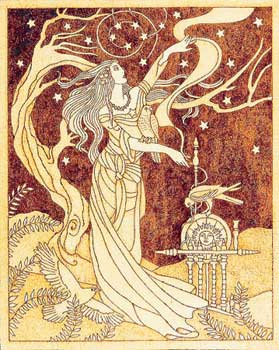Days of the week
Have you ever wondered why the Sunday has a sun in the beginning? Have you ever wondered why Friday suggests a fried up day, that too with the wrong spelling of “fry”? Or have you ever wondered why Mondays even exist?
I bet you can answer at least the last one in positive. Good news is that you will get answers to these questions today. Yes, even to the last one. Wait, can I retitle the article to “Why do Mondays exist?” I guess it’s too late.
So, the days of the week have ancient origins. And their place of birth is Ancient Rome. Well, apart from helping Shakespeare with the plot of Julius Caesar and enjoying gladiator fights, the Romans apparently did other stuff too. An important aspect of that other stuff was their mythology and religion that is still center of interest to researchers, authors and filmmakers.
Roman astronomy was closely interlinked with their mythology and religion, so much so that they named all planets after their gods. In those times, celestial bodies were thought to have a major influence on the events happening on earth. (Now things are different, of course, or wouldn’t people passionately read and believe in horoscopes? Hint: they do.) Even the word “disaster” has ancient roots andliterally means “bad star”.
The planets the Romans used to have back then were: Saturn, Jupiter, Mars, Sun, Venus, Mercury and Moon, arranged in the order of distance from earth. Each hour of the day was thought to be ruled by a planet in the sky. So, a day of the seven-day week was named after the planet that ruled the first hour of that day. For example, Saturn happened to be the king of the first hour of the first day of the week, so the day went to Saturn. The next day (24 hours later) went to the emperor of the 25th hour starting from the Saturn hour, which was Sun. Then came Moon, then Mars, then Mercury, then Jupiter and finally Venus.
First day of the week was dies Saturni (Latin for “Saturn’s Day”). Doesn’t it sound similar to Saturday? Second day belonged to the sun god, so it was naturally called dies Solis (“Sun’s Day” - Sunday). The third day of the week was for the moon god, or dies Lunae. English Anglicized Lunae to “moon”; hence, Monday emerged. French (and other Romance languages) still uses the Latin Luna for Monday: Lundi. Tuesday in French is Mardi, which again makes sense since the Romans associated the day to Mars (dies Martis). But the Anglo Saxons (early inhabitants of England) preferred their own god of war, Tiw, over the Roman Martis, hence the name Tuesday.
Mercury was responsible for the name of Wednesday (dies Mercurii). Well, still in French: Mercredi. As desperate as the Anglo Saxons were to use the names of the days invented by the Romans, they also could not afford to enrage their own gods by alienating them from the system altogether. So Woden (Anglo Saxon god who was believed to have created the universe) was inserted in the name of the day we now call Wednesday (or Woden’s day). Now, the next one is easy. Roman god for sky and thunder was Jupiter (French for Thursday: Jeudi), but the Anglo Saxons had a nice counterpart in the form of Thor. So it was named Thor’s day which later became Thursday. And finally, the day we all love: Friday. The Romans named it after their goddess of love, Venus. French for Friday is still Vendredi, but the Anglo Saxons had their own goddess of love called Frigg. So, what started off as Frigg’s day turned into Friday in centuries.
Now comes the most awaited part: Why do Mondays exist? Here is the answer: Mondays exist because Ancient Roman astronomers thought that moon is a planet. That’s so irresponsible of them, no? I mean, who in the name of Woden would make such a mistake and let the generations to come suffer from the curse of moon god?
Well, for now, the only solace lies in the fact that the moon-ster is still three days away, so let’s enjoy the weekend to the fullest! Till next Frigg’s day, ba-bye!